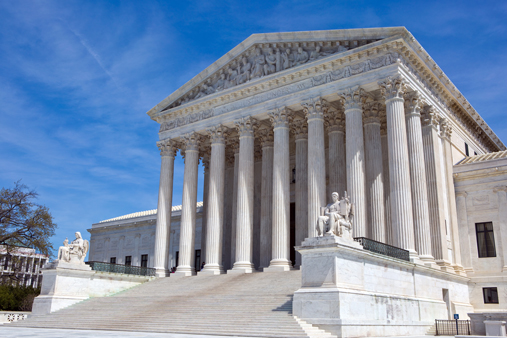The FDA recently issued a final guidance document titled, “Circumstances that Constitute Delaying, Denying, Limiting, or Refusing to Permit Drug Inspection.” In July 2012, the Food and Drug Administration Safety and Innovation Act (FDASIA) was enacted. Section 707 of FDASIA added section 501(j) to the FD&C Act to deem adulterated a drug that “has been manufactured, processed, packed, or held in any factory, warehouse, or establishment and the owner, operator, or agent of such factory, warehouse, or establishment delays, denies, or limits an inspection, or refuses to permit entry or inspection.” Section 707(b) of FDASIA required the FDA to issue guidance that defines the circumstances that would violate section 501(j). This guidance is the FDA’s attempt to do so.
The guidance is controversial in several respects. Because the statutory provision quoted above is limited to drugs, perhaps the most noteworthy and controversial part of the guidance is the FDA’s position that “[t]he guidance … covers facilities subject to inspection under any of the authorities in section 704 of the FD&C Act, even if some other authorities in that section may be limited or inapplicable.” Section 704 on its face covers facilities where “food, drugs, devices, tobacco products, or cosmetics are manufactured, processed, packed or held.” Thus, the FDA appears to be asserting that the principles in the guidance apply to all the industries it regulates, even though the statutory authorization is limited to the drug industry.
Another controversial aspect of the guidance is the FDA’s assertion that “limiting” an investigation includes not allowing an FDA inspector to take photographs that the investigator deems necessary to conduct the investigation effectively. The FDA has long asserted its power to take photographs, and lawyers have questioned that power for an equally long time. FDA has traditionally argued that two court cases give it this power, but most lawyers agree that the cases do not support the FDA’s position. Nonetheless, many lawyers advise their clients to allow an FDA inspector to take photographs to maintain goodwill with the agency and because the FDA can almost certainly obtain a subpoena authorizing it to do so anyway.
Other controversial parts of the guidance include the FDA’s positions that it has authority to interview employees (not found in the FD&C Act) and that it has authority to demand production of records maintained in facilities other than the one being inspected, even though the statute limits FDA’s authority when inspecting a facility to request records “therein.”
Other non-exclusive examples of conduct cited by the guidance that could be found to constitute one of the proscribed types of interference with an inspection include:
- Delay scheduling pre-announced inspections
- A facility will not agree to a proposed inspection start date and does not give a reasonable explanation for its failure to do so
- After scheduling an inspection, a facility requests a later start date without giving a reasonable explanation
- A facility fails to respond following FDA’s attempt to contact the facility’s designated contact(s)
- Delay during an inspection
- A facility does not allow the FDA investigator access to an area of the facility until a specific future date or time even though the area is operational and is an area of the inspection site that FDA has authority to inspect
- A facility leaves the FDA investigator in a conference room without access to necessary documentation or responsible individuals for an unreasonable period of time that interferes with the investigator’s ability to complete the inspection
- Delay producing records
- During an inspection, the FDA investigator requests records FDA has authority to inspect within a specific, reasonable timeframe, but the facility fails to produce the requested records within the timeframe requested by FDA, without adequate justification
- FDA requests records pursuant to section 704(a)(4) of the FD&C Act, but the facility fails to produce the requested records in a timely manner, without adequate justification
- Denial of inspection
- A facility rejects FDA’s attempt to schedule an inspection
- A facility does not allow the FDA investigator to begin an inspection of a facility, even if it has been pre-scheduled
- A facility does not allow the FDA investigator to inspect the facility because certain staff members are not present
- A facility does not allow the FDA investigator to inspect the facility by falsely alleging the facility does not manufacture drugs
- Limiting an inspection
- Limiting access to facilities or manufacturing processes
- Limiting access to or copying of records
- Limiting or preventing collection of samples
- Refusal to permit entry or inspection
- The facility bars the FDA investigator from entering the facility or certain areas of the facility, for example, by not unlocking the areas or taking other necessary actions that would permit access by the investigator(s)
- Following FDA’s attempt to contact the facility’s designated contact(s), the facility fails to respond
- The facility does not answer calls from the FDA investigator who is present at the facility, despite clear evidence of the presence of employees engaged in job-related functions
As a review of these examples reveals, another troublesome aspect of the guidance is that many of these are vague or subjective (“reasonable,” “timely,” “without adequate justification”). The final guidance improves on the draft version in this respect by offering examples of reasonable explanations or adequate justifications. There are not many examples, however, and they are fairly obvious.
As always, it important to remember that a guidance document, even when final, does not establish legally enforceable responsibilities, but simply represents the FDA’s current thinking on a subject.
A copy of the guidance can be found here.
For more information, please contact the Barnes & Thornburg LLP attorney with whom you work or one of the following attorneys in the firm’s Food, Drug & Device Group: Lynn Tyler at (317) 231-7392 or lynn.tyler@btlaw.com; Hae Park-Suk at (202) 408-6919 or hae.park.suk@btlaw.com.
Visit us online at www.btlaw.com/food-drug-and-device-law-practices.
©2014 Barnes & Thornburg LLP. All Rights Reserved. This page, and all information on it, is proprietary and the property of Barnes & Thornburg LLP. It may not be reproduced, in any form, without the express written consent of Barnes & Thornburg LLP.
This Barnes & Thornburg LLP publication should not be construed as legal advice or legal opinion on any specific facts or circumstances. The contents are intended for general informational purposes only, and you are urged to consult your own lawyer on any specific legal questions you may have concerning your situation. Visit us online at www.btlaw.com and follow us on Twitter @BTLawNews.









/Passle/6488d4630e7e25c9ac9f834a/MediaLibrary/Images/2024-07-18-19-15-33-047-669969d52008239f764a11af.png)


/Passle/6488d4630e7e25c9ac9f834a/SearchServiceImages/2024-07-17-15-17-44-967-6697e0980752df56d2441ada.jpg)
